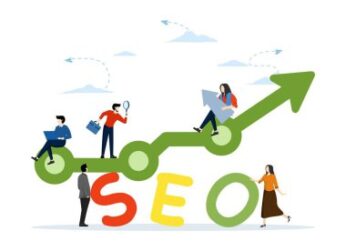Google’s August 2025 spam update negatively impacts websites with thin, or duplicate content, employing manipulative SEO tactics such as auto creating low content pages using AI, and exploits like doorway pages or link schemes. Websites adhering to high-quality, user-centric content and best practices are expected to benefit from the update, which aims to create a cleaner, more trustworthy web. The update’s impact varies, but consistent application of Google’s spam policies, focusing on genuine value and user experience, is key to both recovery and future-proofing a site’s search presence. [1, 2, 3, 4, 5]
How the August 2025 Spam Update Affects Your Site
- Targeted Demotion of Spam: The update specifically targets manipulative practices, including: [1, 2]
- Auto-generated content: Pages with excessive or unrefined AI-generated text. [1, 6]
- Thin content: Pages that offer little value or original insight. [1, 2]
- Duplicate content: Pages with identical or near-identical content. [2]
- Doorway pages: Pages designed to target slight keyword variations to rank for multiple terms. [1]
- Exploitative practices: Site reputation abuse and scaling user-generated content. [1, 7]
- Increased Visibility for Quality Sites: Websites focused on creating high-quality, user-focused content will see improved search rankings and trust signals. [3, 4, 8]
- Brand Reputation Risk: Websites flagged for spam may suffer significant ranking drops, leading to lost traffic and revenue. [3]
What to Do if Your Site Is Affected
- Monitor Search Console and Analytics: Check for sudden ranking or traffic declines. [2, 9]
- Audit Content for Quality: Review your site for uniqueness, depth, and originality. [2, 4]
- Improve E-E-A-T: Enhance your Expertise, Experience, Authoritativeness, and Trustworthiness. [2, 10]
- Address Manipulative Tactics: Remove any spammy SEO tactics, such as keyword stuffing, toxic backlinks, or scraped content. [2, 5]
- Review Google’s Spam Policies: Ensure your site complies with all Google spam guidelines to avoid future issues. [9, 11]
Future-Proofing Your Site
- Focus on User Experience: Create genuinely helpful and valuable content for people, not just search engines. [3, 4]
- Maintain Transparency: Be open and build trust with your audience. [4]
- Prioritize Quality and Authenticity: Adopt ethical SEO practices that prioritize long-term quality and user satisfaction. [4, 5]
Sources
[1] https://www.tonicworldwide.com/blog/how-google-algorithm-updates-affect-seo-strategy
[2] https://1solutions.biz/how-the-august-2025-spam-update-affects-website-ranking/
[3] https://www.linkedin.com/pulse/googles-latest-spam-update-august-2025-how-affects-nagdc
[4] https://blueiris.in/understanding-googles-august-2025-spam-update-what-it-targets-and-how-to-avoid-it/
[5] https://www.damteq.co.uk/articles/august-2025-spam-update-explained/
[6] https://itishniki.com/google-august-2025-spam-update-seo-guide/
[7] https://www.youtube.com/watch?v=y6G6TUiyIhc
[8] https://acsius.com/blog/august-2025-google-spam-update-everything-you-need-to-know/
[9] https://invoidea.com/blog/googles-august-spam-update-2025
[10] https://rankings.io/blog/august-2024-google-core-update/
[11] https://localdominator.co/google-august-2025-spam-update/








